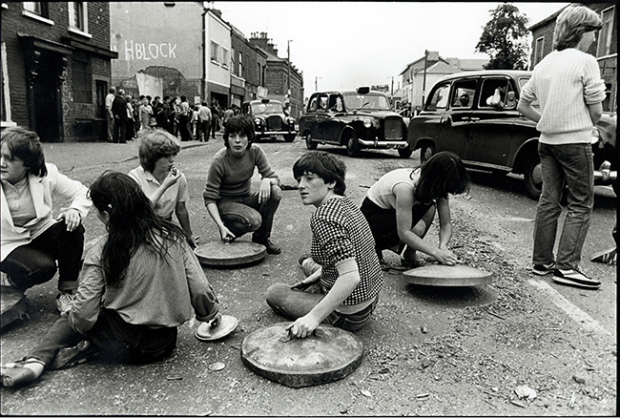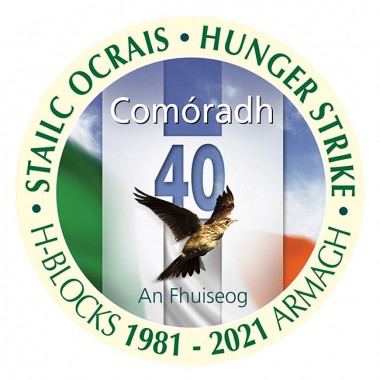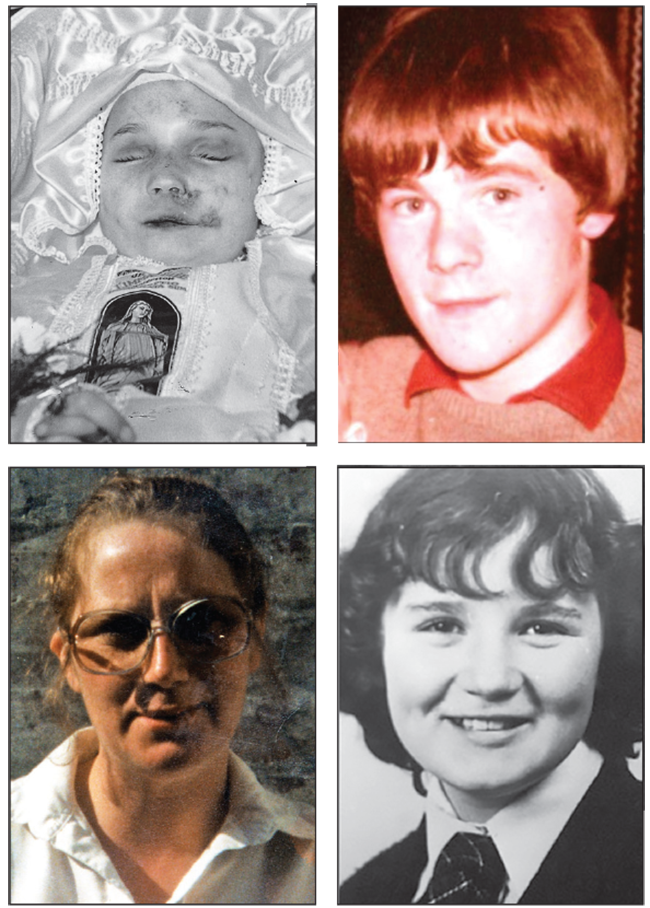20 May 2021 Edition
The harvest Britain has sown

“Maggie, Maggie, Maggie, Out, Out, Out.” “What do we want? Political Status. When do we want it? Now!” The deafening sound of voices in protest against British Prime Minister Maggie Thatcher, the clash of steel bin lids bashing the cold grey concrete - our symphony of resistance; a chorus of harsh, shrill whistles piercing your brain; the heart-breaking sounds of collective grief as our hunger strikers died, one by one; the thunderous volley of shots which saluted their courage.
These are but some of the flashing sounds and images which instantly course through my body and mind when I have to address the hunger strike memories. But in truth, some 40 years on, it still represents a “no go area” of emotional trauma – a work in progress. Ask anyone who went through that period and it’s a likely similar situation.
By chance, I was listening to the BBC World Service in the early hours of 5 May, the 40th anniversary of Bobby Sands death. The voice sounded familiar; it was former hunger striker Laurence McKeown, describing his own account of the multiple and psychological effects on his body and mind of prolonged hunger strike. It was a harrowing account. It was audible when he dropped his voice describing it as best he could. My heart went out to him, 40 years on, and on the day of Bobby’s 40th anniversary. Still taking its own individual toll.

Often during the long years of the prison protests which led to the 1980 and ’81 hunger strike period, we were a handful of voices shouting into the wind, our pain lost amidst the storm of condemnation whipped up by the British propaganda machine. It spouted a toxic narrative that we were a “terrorist community” who supported “terrorists and criminals”.
That labelling, that demonisation of the republican people and our political prisoners fostered a context and atmosphere where Britain’s crown forces inflicted extreme brutality and cruelty against us. In effect, the rights we should have had guaranteed under the UN Convention on Human Rights were cast aside by the Tories and others in the British establishment. The police and army had complete immunity to terrorise and oppress us in whatever way they determined. We were fair game; young, old, women, children, protesting prisoners.
Working on AP/RN at the time, I had interviewed hunger striker Sean McKenna’s mother not long before he became close to death on the first hunger strike in 1980. I saw what a heavy toll it was extracting from her so when the second hunger strike was embarked upon by Bobby Sands in March 1981, there was a much stronger foreboding in the air. We could have many deaths ahead.
I was among a small team from AP/RN covering the countless street demonstrations popping up in towns and villages across the North as the momentum gathered pace. The awareness that, minute by minute, Bobby and his comrades had no time to spare, weighed heavily on us. Hard-faced, hard-hearted Thatcher dug in and with it so did we. As a community, we faced death and multiple injuries as the RUC and British Army unleashed lethal plastic bullets against peaceful protesters or shot dead little children and young people like Carol Ann Kelly, Paul Whitters, Julie Livingstone from close range as they walked their streets.

• The British Army shot dead (clockwise from top left) Carol Ann Kelly, Paul Whitters, Julie Livingstone from close range as they walked their streets and Nora McCabe as she was going to get some cigarettes
The RUC shot lovely Nora McCabe, a mother of two wee children as she was going to get some cigarettes. There was a relentless, savage escalation in the use of plastic bullets. It was, and is, a weapon of political control. In April 1981, a month after Bobby embarked on hunger strike, 1,959 plastic bullets were fired.
The May total was a staggering 16,656 rounds fired. By August, seven people had been killed by plastic and rubber bullets*. Countless more sustained horrific, life-changing injuries and to this very day, there is no official record of the total involved as most of those injured were afraid to attend hospitals in fear of arrest.
We would cover the impact of injuries as best we could in order to give voice to the victims but the hardest of all for me personally was covering the funerals of several of our hunger strikers and putting together their personal and political profiles. Often, this meant speaking to their friends, comrades, and sometimes it meant speaking to close relatives. I will never forget their humility and their dignity.

We operated out of our Falls Road offices and often did a 24 hour rota to cover the developing situation during the hunger strike as several of them died in the early hours. Then the bin lids would sound or the women would come onto the street corners and say the rosary, holding black flags. This was a continuous feature of our lives until the hunger strike ended in October that same year.
By then, everything had changed, changed utterly. The sacrifices made then put the spotlight on Britain’s evil prison policies and its wider suppression of our people and it paved the way, through Bobby’s election as MP for Fermanagh/South Tyrone, for mass mobilisation and international attention on the North. It was the start of a dynamic election strategy which saw Sinn Féin’s surge of support.
I often go up to the grounds of the Roddy McCorley Society here in West Belfast where I once watched the friends, comrades, and families of our hunger strikers plant 12 tender oak whips into the ground in their memory. Tributes to Michael Gaughan, Frank Stagg, and the 1981 hunger strikers. They are growing tall and strong, showing us that from death springs life and that there is a rhythm of time and of growth.
Bobby once wrote about “The Harvest Britain has Sown” in Ireland. He was speaking about the fear he had that the prison regime could make good men turn to hatred if it wasn’t for their minds and spirits remaining free. At a time when we have just celebrated with the Ballymurphy families then agonised with them as insult was added to injury by another Tory, Boris Johnston, be assured of this, as Bobby said, “This is the harvest Britain has sown: her actions will eventually seal the fate of her rule in Ireland”.
* (Source: They Shoot Children, The use of Rubber and Plastic bullets in the North of Ireland).
Chrissie McAuley is a former Sinn Féin councillor and An Phoblacht journalist.



